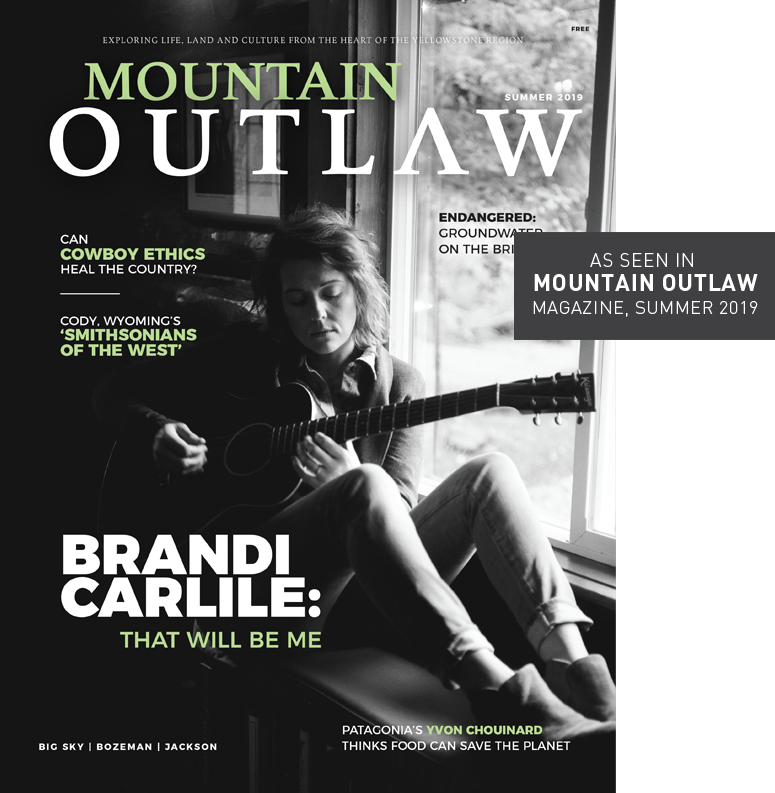There are places more valuable than gold.
BY ANTHONY PAVKOVICH
That was the unifying belief of outfitters, ranchers, hoteliers and residents that call Paradise Valley home. In spring of 2019, they had their faith ratified when Congress passed the largest public lands bill in over a decade.
Drawing Republicans, Libertarians, Democrats and Independents together, this sweeping piece of bipartisan legislation included more than 100 separate bills that renewed the Land and Water Conservation Fund, designated 1.3 million acres as wilderness, and withdrew 370,000 acres from mineral development in Montana and Washington state.
As a part of this omnibus bill, the Yellowstone Gateway Protection Act protected more than 30,000 acres of public land on the northern edge of Yellowstone National Park from potentially toxic gold mining.
While gold has been a driving economic factor since the first settlement in Paradise Valley, modern, large-scale extraction has not had a presence in the area. In 2015, two mining companies sought to explore the mountains above the Montana communities of Emigrant and Gardiner. Mining sulfide ore from these areas would put the downstream watershed at risk to acidic mining waste, a biproduct of industrial scale practices and a frequent contaminant resulting from hardrock mining.
In response to these proposed mines, neighbors came together weighing the impacts and examining the economic trade-offs, and reached a consensus that water quality and long-term environmental health were more valuable than the short-term economics of a boom-and-bust cycle.
Residents of the valley looked for a strong voice to carry their concerns to Washington, D.C. The Yellowstone Business Gateway Coalition, Park County Environmental Council, and the Greater Yellowstone Coalition found an ally in Senator Jon Tester, D-Montana, who introduced key legislation in early 2017 to protect the watershed.
“Mining has long played an important role in Montana’s history and our economy, but there are some places where it simply isn’t appropriate,” Tester wrote in a statement upon his bill’s introduction. “The doorstep of Yellowstone, which was established as our first national park 144 years ago, is one of those places.”
But the legislative process is long, hard and easily derailed.
Colin Davis, owner of Chico Hot Springs just off Highway 89 in Paradise Valley, is one of the founding members of the Yellowstone Gateway Business Coalition, a group of nearly 400 land and business owners fighting the mining proposals. During frequent trips to D.C., Davis spoke of the valley’s economic reliance on tourism. As the northern gateway into Yellowstone, Park County visitors spent an estimated $196 million in 2014, and the value of tourism has only increased since then. The area’s pristine landscape draws in business, and local merchants wouldn’t risk the watershed for a gold mine.
However, in the District of Columbia, a single senator can’t advance a bill alone, and the coalition needed allies. By the end of 2017, with a strong push from local business owners, Representative Greg Gianforte, R-Montana, introduced a companion bill in the House.
It took more hearings, more effort and more energy, but by early 2019 the coalition had Montana Republican Senator Steve Daines cosponsoring Tester’s bill as well. In an age of partisan politics, having the entire Montana delegation agree on a topic, let alone advocate for a bill, was inspiring and helped push the legislation forward.
By early 2019, momentum was on the coalition’s side and Tester’s bill swept through Washington. Showing broad national support, the Senate voted 92-8 before moving the bill to the House where it passed with a vote of 363-62.
“It took public lands to bring a divided government together,” Daines said. “It’s a testimony to who we are as Americans.”
At a time when Congress is often gridlocked along party lines, the YGPA showed what is possible when ideologies are put aside to protect the shared values of a community. The legislation was one of the biggest conservation packages to pass Congress in over a decade and had sweeping implications across the West as well as Montana.
On March 12, President Trump signed the public lands package and the YGPA into law.
A few days later, Tester and community members gathered at Chico Hot Springs. “We’re really here to celebrate the future of Paradise Valley and the future of our children,” said Davis, raising a glass that evening. That future continues to include
a sustainable tourism economy based on healthy water and pristine lands.
“It’s absolutely incredible to see the power of a united community,” said Michelle Uberuaga, the executive director of Park County Environmental Council. “We were able to set aside personal politics, stand shoulder to shoulder and work hard to safeguard the headwaters of the Yellowstone River, our public lands, our wildlife … and our community. It’s just incredible.”
Conservation bills often take decades of hard work to become law. The framework of the YGPA, with it’s large coalition of local support, diverse membership and strong economic arguments is a powerful example for future conservation measures. The pace of advancing this bill into law and it’s striking success shows that when communities roll up their sleeves and work together, they still have a voice in American politics.
Anthony Pavkovich is a writer, photographer and human-powered adventurer residing along Montana’s border with Yellowstone National Park. His work is inspired by the abundance of wild and public lands surrounding his home.

